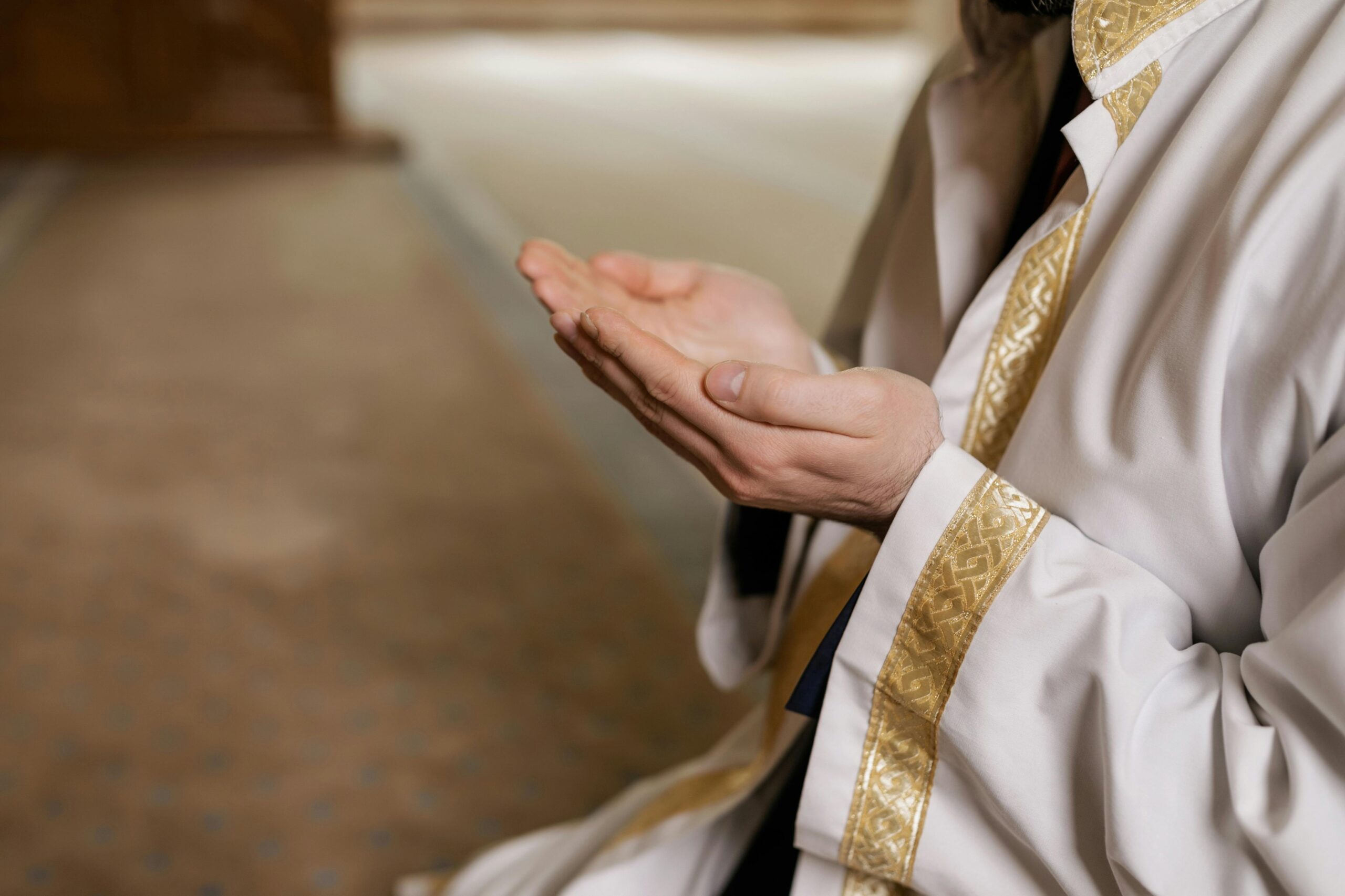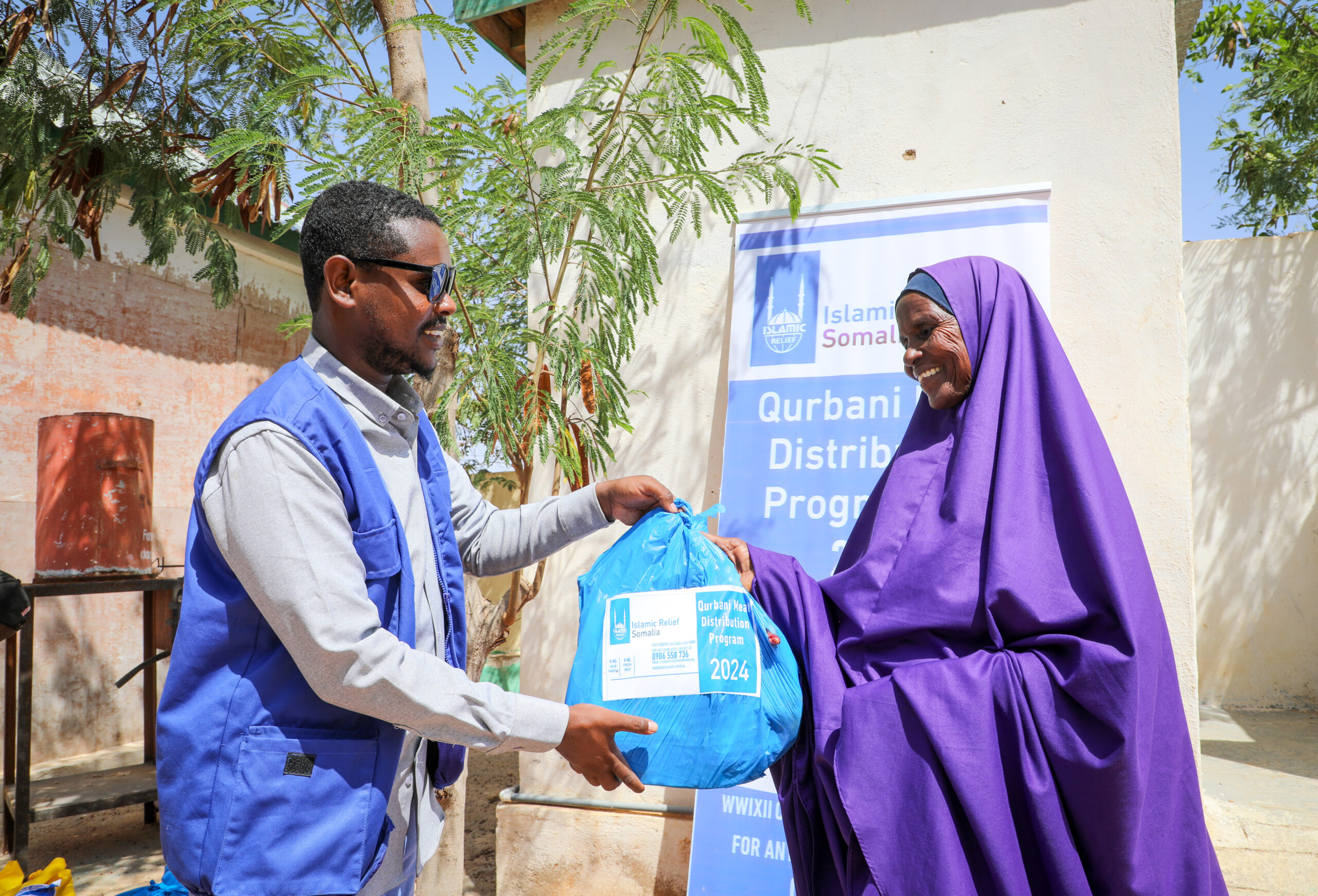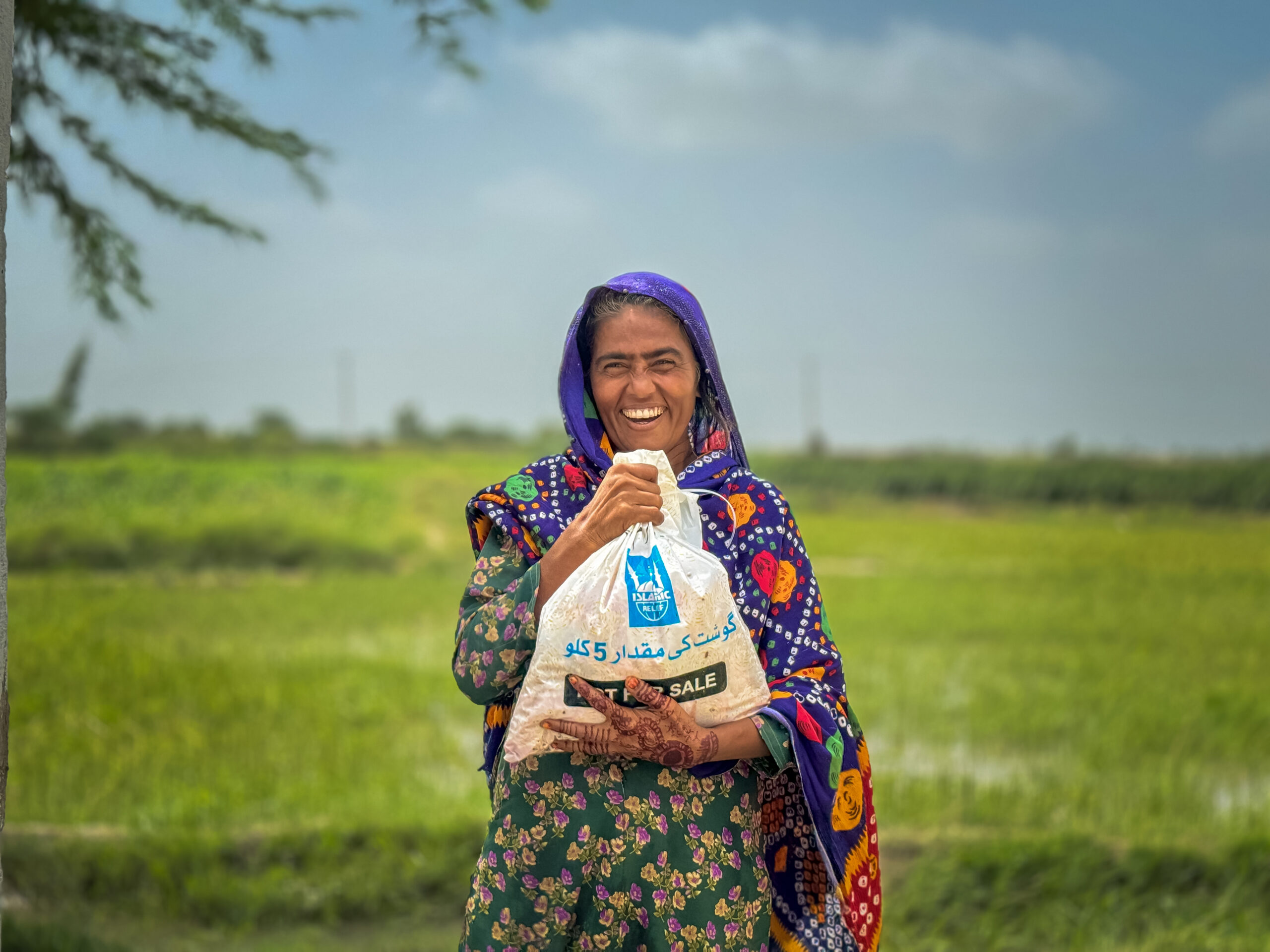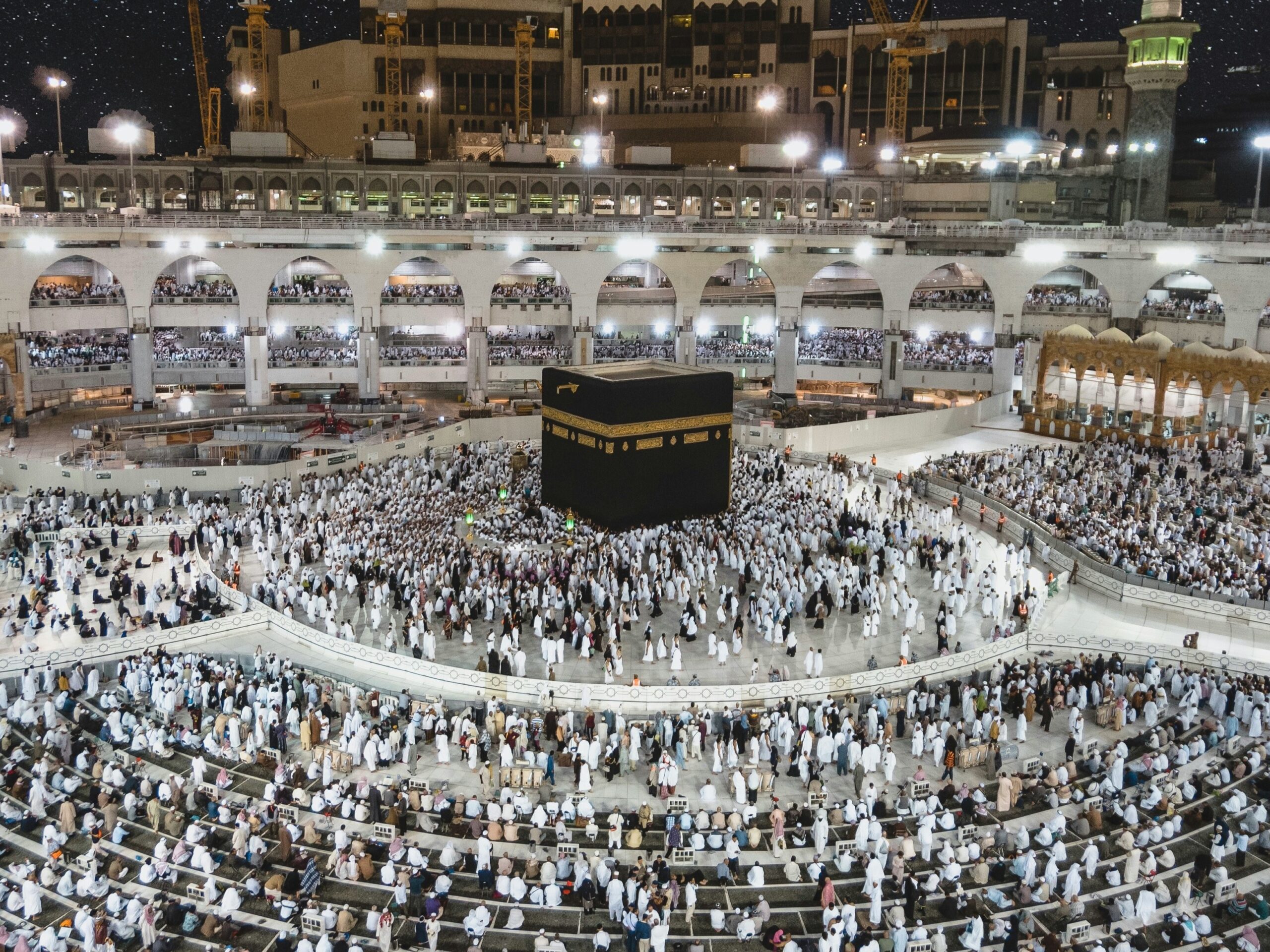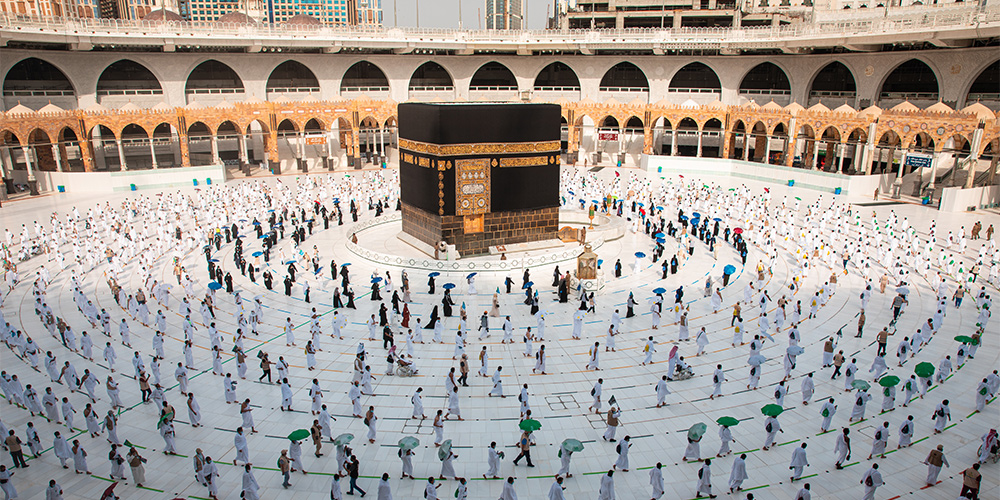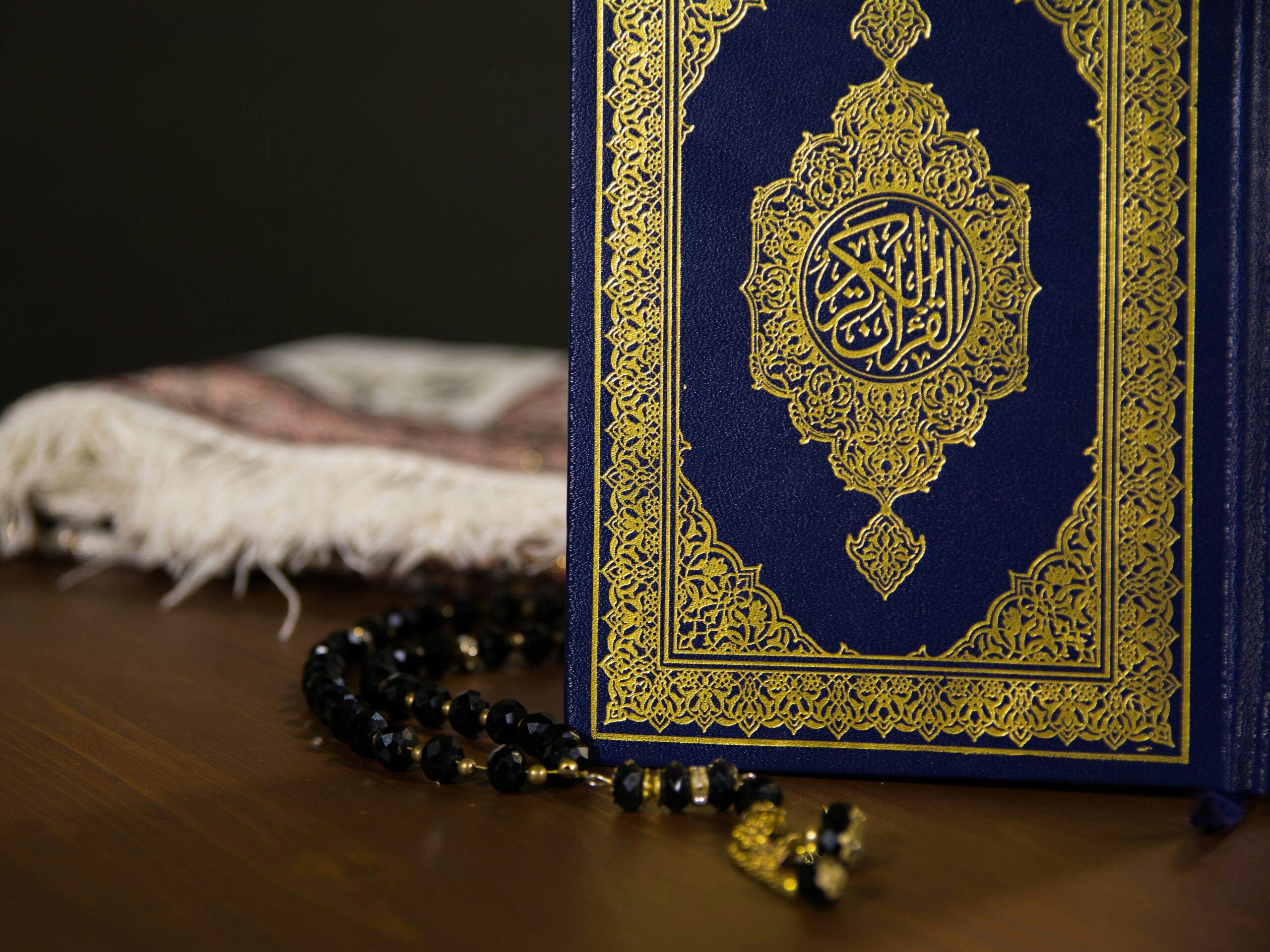
06.05.24
10 Easy Acts You Can Do for the First 10 Days of Dhul Hijjah
The first ten days of Dhul Hijjah hold great religious significance. It is a special period in the annual Islamic (Hijri) calendar. A time when Muslims are advised to increase their acts of goodness and spirituality to reap the rewards of the most blessed days.
For our noble Prophet Muhammad ﷺ said,
“There is no deed more precious in the sight of Allah, nor greater in reward, than a good deed done during the ten days of Sacrifice.”
He (Prophet Muhammad ﷺ) was then asked,
“Not even jihaad for the sake of Allah?”
To which he ﷺ replied,
“Not even jihaad for the sake of Allah, except in the case of a man who went out to fight giving himself and his wealth up for the cause, and came back with nothing.”
Sahih Al-Bukhari
The Meaning of Dhul Hijjah
The word “Dhul Hijjah” can be translated to “Month of Pilgrimage”. During the month of Dhul Hijjah, Muslims perform the Hajj. Hajj, also known as the pilgrimage, is one of the five pillars of Islam.
The pilgrimage involves Muslims travelling to Makkah in Saudi Arabia to fulfil this religious obligation and its rituals. Every Muslim, who is of age and physically, financially and spiritually able to go on Hajj, must perform it at least once in their lifetime.
However, even for Muslims not going on Hajj, there are still numerous ways to benefit from the first ten days of Dhul Hijjah. Here are 10 actions anyone can do during this blessed period to maximise their rewards!
Fasting the First 9 Days of Dhul Hijjah
It is a Sunnah of the Prophet (ﷺ) to fast on the first nine days of this month. Fasting is also one of the best acts of worship. As reported by the Prophet (ﷺ), Allah said,
“All the deeds of the son of Adam are for him, except fasting, which is for Me and I shall reward (the fasting person) for it.”
Sahih Al-Bukhari
Even if you cannot fast for all of the first 9 days of Dhul Hijjah, try to at least fast on the 9th day. This is the day of Arafah – the greatest day of the year. By fasting on this day, you gain immense rewards.
“Fasting on the Day of ‘Arafah absolves the sins for two years. The previous year and the coming year, and fasting on ‘Ashura, (the tenth day of Muharram) atones for the sins of previous years.”
Sahih Muslim
Increasing Daily Prayers (Salah)
On these blessed days, take this time to perfect and increase the daily practice of Salah.
If you haven’t been praying the five fardh (obligatory) prayers – Fajr, Dhuhr, Asr, Maghrib and Isha – on time, now is the time to start. Try to pray together with your friends and family, as there are more rewards for praying together.
“Salat in congregation is twenty-seven times more meritorious than a Salat performed individually.”
Bukhari and Muslim
If you’ve already been praying the fardh prayers, take this opportunity to start praying the sunnah and nafl (voluntary) prayers. You can also start building the habit of praying tahajjud (night prayer done in the last third portion of the night prayers), especially if you’re already fasting for the first 9 days.
Reading Quran
Reciting the Quran is one of the best forms of worship. The Prophet ﷺ said,
“The one who is proficient in the recitation of the Quran will be with the honourable and obedient scribes (angels) and he who recites the Quran and finds it difficult to recite, doing his best to recite it in the best way possible, will have a double reward.”
Bukhari and Muslim
Try to recite the Quran as often in these blessed 10 days. Set up a schedule or attach the recitation to some other activity that you already do regularly. For example, set a goal to recite one page of the Quran after a fardh prayer, as you have to pray these regularly everyday.
Once you build up the habit for the 10 days, you can make it so that you carry this habit for the rest of your life!
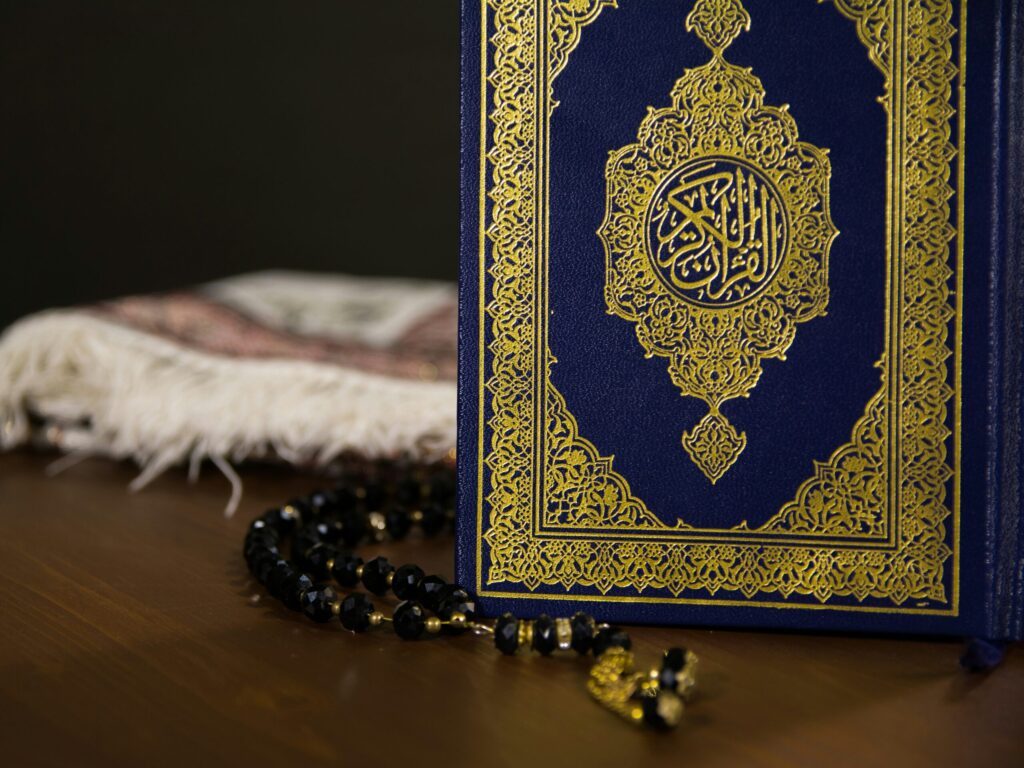
Dhikr (Remembering Allah SWT)
Making Dhikr is a powerful act of worship and one you can do virtually any time. There are many types of Dhikr you can make to help put your mind at ease and bring you closer to Allah (SWT). Within the first 10 days the Prophet Muhammad emphasised to especially to recite this dhikr:
“There are no days that are greater before Allah or in which good deeds are more beloved to Him than these ten days. So recite a great deal of tahleel, takbeer and tahmeed during them.”
Ahmad
The meaning of Tahmeed, Tahleel and Tasbeeh as are follows:
- Tahmeed: Al-hamdu Lillah (All praises be to God)
- Tahleel: Laa ilaha ill-Allah (There is no god but Allah)
- Tasbeeh: Subhaan-Allah (Glory be to God).
Performing Charity
In these blessed 10 days of Dhul Hijjah, one of the best ways to earn rewards is through Sadaqah (voluntary charity).
The Prophet (ﷺ) said:
“Sadaqah (charity) extinguishes sins just as water extinguishes fire.”
Tirmidhi
Making Istighfar (Seeking Forgiveness from Allah SWT)
It’s part of our human nature to be forgetful and make mistakes. Allah (SWT) understands this, so He says in Surah Al-Baqarah,
“And seek Allah’s forgiveness. Surely Allah is All-Forgiving, Most Merciful.”
Quran 2:199
In the 10 days of Dhul Hijjah, make lots of istighfar, including by saying “Astaghfirullah” (meaning “I seek forgiveness of Allah”). May Allah forgive us for our sins and guide us to the right path.
Strengthening bonds with loved ones
Islam emphasises the importance of having good relationships (Silaturrahim) with our family and fellow Muslims for the sake of Allah (SWT). Abu Hurairah narrated that the Prophet (ﷺ) said,
“Learn enough about your lineage to facilitate keeping your ties of kinship. For indeed keeping the ties of kinship encourages affection among the relatives, increases the wealth, and increases the lifespan.”
Tirmidhi
So, whenever you can these 10 days of Dhul Hijjah, reach out to your loved ones and reconnect.
Letting go of our bad habits
Allah (SWT) loves those who quit their sins and bad habits for His sake. The Prophet Muhammad (ﷺ) said:
“Allah says, ‘If My slave intends to do a bad deed then (O Angels) do not write it unless he does it; if he does it, then write it as it is, but if he refrains from doing it for My Sake, then write it as a good deed (in his account)…
Sahih Al-Bukhari
Make use of these 10 days of Dhul Hijjah to start small and try to overcome one of your bad habits. Once you consistently keep off the sin, you can eventually build on the momentum to address the more difficult habits. In this way, we earn Allah’s pleasure by sacrificing our desires for His sake.
Performing Qurban (Sacrifice)
“For every hair of the Qurban you receive a reward from Allah.”
Tirmidhi
Qurban (also known as Qurbani or Udhiyah) is an Islamic tradition that takes place on the Eid Al-Adha, which starts on the 10th of Dhul Hijjah. During Eid Al-Adha (the “festival of sacrifice”) Muslims slaughter an animal (either a goat, sheep, cow, bull, buffalo or camel). This action is to commorate Prophet Ibrahim (AS)’s willingness to sacrifice his son, Ismail (AS), for the sake of God.
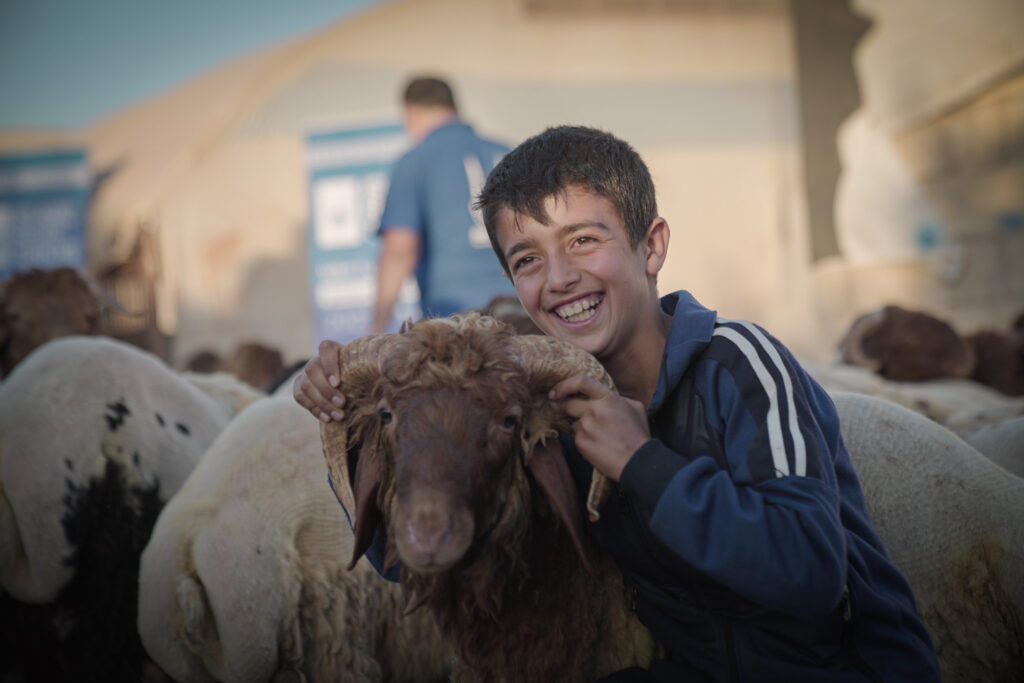
It is recommended that Qurban is offered after Eid prayer. But if this is not possible, it can also be done on the days of Tashreeq, the three days after Eid Al-Adha. In most cases, Muslims who have not offered Qurban yet will schedule a sacrifice on the 11th or 12th of Dhul Hijjah.
“The first thing we will do on this day of ours, is to offer the (`Id) prayer and then return to slaughter the sacrifice. Whoever does so, he acted according to our Sunna (tradition), and whoever slaughtered (the sacrifice) before the prayer, what he offered was just meat he presented to his family, and that will not be considered as Nusak (sacrifice).”
Sahih Al Bukhari
According to most scholars, every sane, adult Muslim with wealth in excess of his or her needs should give Qurban. It is such an important act of worship during these blessed days. So much so that the Prophet (ﷺ) once said:
Whoever can afford it, but does not offer a sacrifice, let him not come near our prayer place.
Sunan Ibn Majah
Normally those who are eligible to pay Zakat have to give a Qurban. Your Qurban also provides poverty-stricken families meat for Eid al-Adha. As, often, this celebration is the only time that they get to enjoy a meal with meat.
Celebrating Eid
Eid al-Adha, much like Eid Al-Fitr, is a celebration filled with joy, blessings and connecting with loved ones. However, unlike the other Eid, it also commemorates the greatest divine sacrifice in history. Where, in obedience and full submission to Allah (SWT), Prophet Ibrahim agreed to sacrifice his beloved son, Ismail (AS), whom he was only bestowed upon in his old age, after many years of longing for a child.
As reward for obeying His orders, Allah (SWT) replaced the son with a ram as a Qurban (sacrifice), and his Ismail (AS) was left unharmed. The order was a test from Allah to His beloved servant, in which Prophet Ibrahim (AS) had passed with flying colours.
Like with Eid al-Fitr, follow the sunnah acts of Eid. This includes taking ghusl (bath) in the morning, putting on perfume, performing the Eid prayer and more.
Bonus: Share This Article With Someone You Know!
“Whoever guides someone to goodness will have a similar reward.”
Sahih Muslim
May your 10 days of Dhul Hijjah be full of prayers, prosperity and blessings, ameen!

